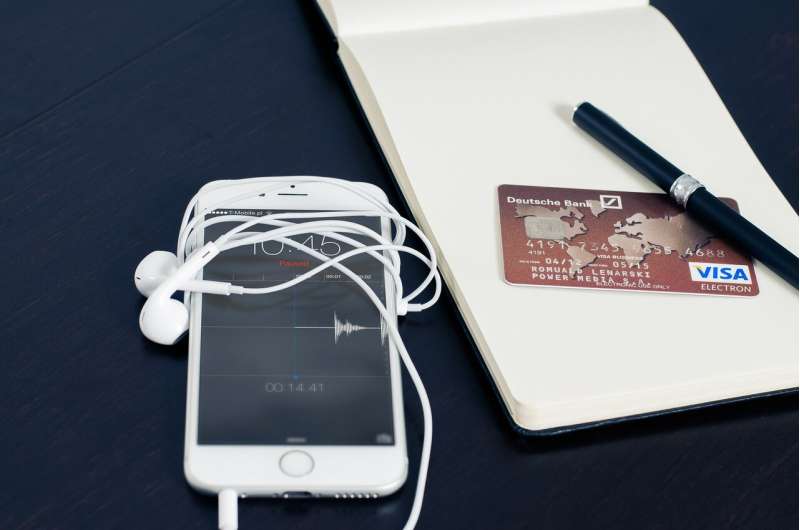#Ask for payment before or after? The effects of timing in pay-what-you-want pricing

Table of Contents
“Ask for payment before or after? The effects of timing in pay-what-you-want pricing”

Researchers from Rollins College, University of Cambridge, and Harvard University published a new Journal of Marketing article that examines the timing effects of payment requests in pay-what-you-want pricing situations.
The study is authored by Raghabendra P. KC, Vincent Mak, and Elie Ofek.
Pay-what-you-want is a pricing mechanism where consumers can decide how much to pay for a product or service. Variations of this idea have been employed widely over the years. Public museums, such as New York’s Metropolitan Museum of Art, have long allowed nominally free entry, but with requests for donations at entry and/or exit.
Panera Bread in the U.S. and the British band Radiohead have both carried out pay-what-you-want arrangements in highly publicized campaigns. Public (public.com) offers brokerage services without a fixed commission rate and earns revenue from optional tipping.
The Guardian newspaper website and Wikipedia have long upheld successful pay-what-you-want models: The Guardian received contributions from more than 1 million readers between 2016 and 2018 and the Wikimedia Foundation raised more than US$120 million in contributions in the fiscal year ending June 30, 2020.
Pay-what-you-want involves the consumer voluntarily paying the seller any (or no) amount of money in return for being unconditionally offered a product or service: an example of a social exchange. With the proliferation of business models based on social exchanges, where businesses refrain from charging fixed prices that might turn away customers who cannot afford them, the pay-what-you-want mechanism has become more prominent in recent years.
However, the success of the pricing mechanism is not guaranteed. For example, Panera’s use of pay-what-you-want did not attain its desired results and was discontinued. Companies implementing pay-what-you-want pricing should carefully align factors that could psychologically affect payments.
As KC explains, “our research investigates whether consumers’ payments differ depending on when they are asked to make their payment decision, before or after receiving the unconditionally offered product, and, if a difference exists, why it occurs and under what conditions. We find that people pay different amounts depending on the timing of their payment decision, even when there is minimal change in uncertainty regarding the value of the product at different timings.”
Timing versus value
The study indicates that people pay more after receiving the offering when the product value is high. “Receiving the offering first makes the social exchange aspect of the transaction salient, which leads to buyers experiencing higher felt obligation towards sellers. However, the effect is mitigated when product value is low. In this case, the social exchange nature of the transaction after receiving a low-value offering is that the exchange is not substantive, which leads to a lower felt obligation and lower payment,” says Mak.
The researchers conducted a laboratory experiment in a large university in the United Kingdom where participants could pay any amount for an Amazon gift card with a specific value as well as a field experiment at a restaurant in Nepal. Results from both experiments lent support to their predictions that consumers/participants pay more after receiving the offer versus before.
The field experiment also provided preliminary evidence for the moderating role of product value; i.e., the effect of increased payment after receiving the product/service only holds true for items of higher value. They then tested their hypotheses with a large online study and found a reversal of the effect for low product value. A final online study, this time in a charitable donation context, again demonstrated the predicted payment decision timing effect for high product value as well as a mitigation of the effect for low product value.
Ofek states, “Our findings offer a key takeaway for businesses that offer a voluntary payment element as well as for nonprofits, social enterprises, and charities where donations in exchange for a good or service are common. If the pay-what-you-want product is of high value, you should solicit pay-what-you-want payment after the product has been delivered to the consumer. On the other hand, if the product is of low value, you should solicit payment before the product has been delivered to the consumer.”
For example, a community theater could employ a pay-what-you-want model when staging performances in an auditorium. The theater might opt to solicit payments before the performances at the entrance. However, if the community attendees tend to value the theater highly, it might be preferable to solicit payments from attendees after the performance.
Similarly, some eateries request that a payment be made before customers receive their order or request an upfront tip for large groups. If consumers perceive that the product is of high value (versus low value), it is more desirable to request a decision on a payment or a tip after (versus before) product delivery.
Raghabendra P. KC et al, EXPRESS: Before or After? The Effects of Payment Decision Timing in Pay-What-You-Want Contexts, Journal of Marketing (2022). DOI: 10.1177/00222429221142234
Citation:
Ask for payment before or after? The effects of timing in pay-what-you-want pricing (2022, December 21)
retrieved 21 December 2022
from https://phys.org/news/2022-12-payment-effects-pay-what-you-want-pricing.html
This document is subject to copyright. Apart from any fair dealing for the purpose of private study or research, no
part may be reproduced without the written permission. The content is provided for information purposes only.
If you liked the article, do not forget to share it with your friends. Follow us on Google News too, click on the star and choose us from your favorites.
For forums sites go to Forum.BuradaBiliyorum.Com
If you want to read more Like this articles, you can visit our Science category.


